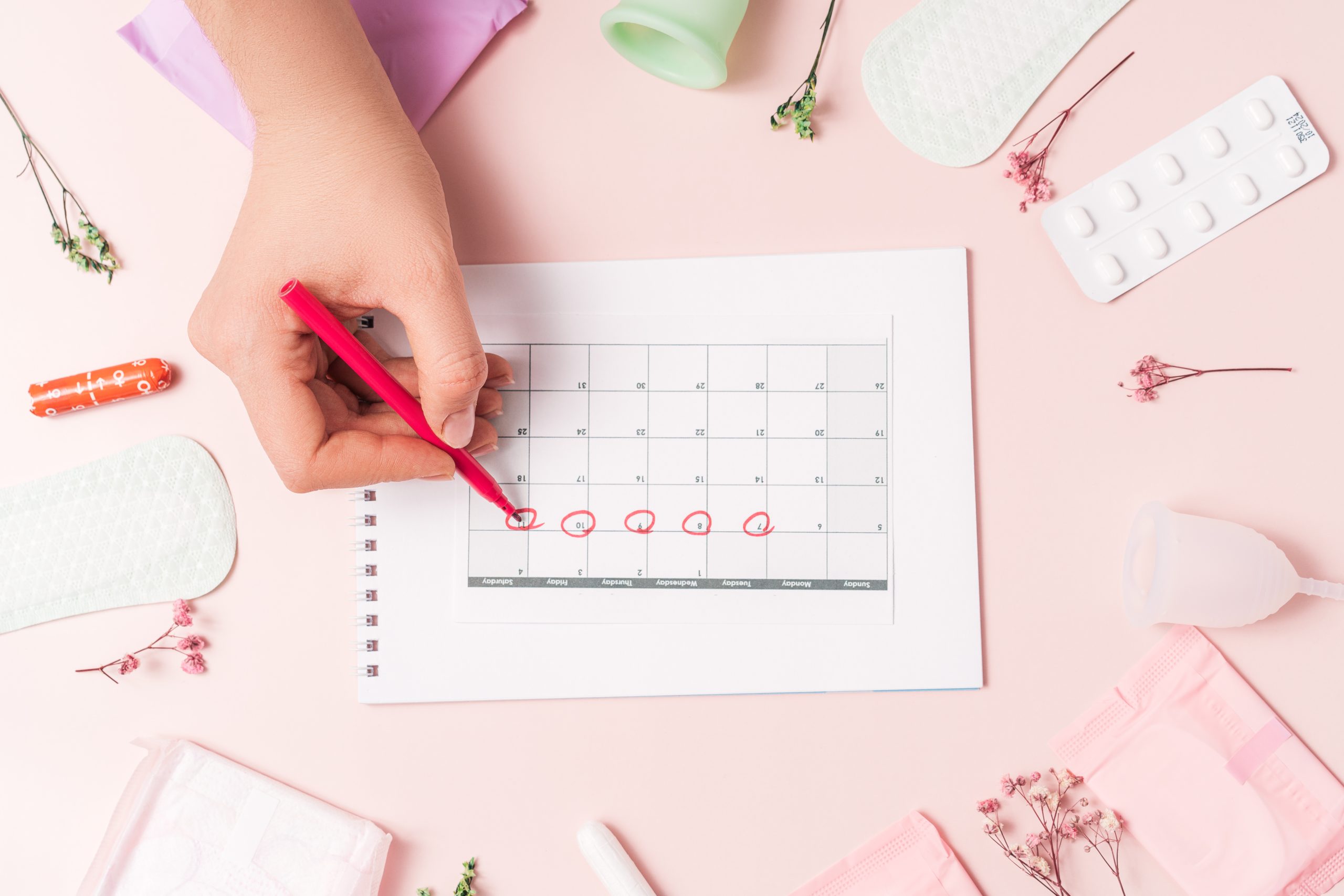Why Is My Period Late? 8 Reasons Why Irregular Period Happens

Why Is My Period Late? 8 Reasons Why Irregular Period Happens
While the feeling of a delayed period can be unsettling, there’s no need to panic. Irregular period is a common issue among girls and women. In fact, in Singapore alone, 23.1% of the 5561 adolescent girls experience period irregularities.
However, if this is a persistent issue, seeking medical advice should help you unpack its root cause and underlying health concerns.
If you want to learn more, this article explores the eight potential reasons behind your irregular period.
What Is Considered an Irregular Period?
Most women have a regular menstrual cycle after puberty, and it’s normal to have slight variations from cycle to cycle. So, what constitutes an irregular period?
According to the Cleveland Clinic, below are instances that exhibit irregularities in your menstrual cycle:
- Excessive irregularities in the length of time between cycles. It can be less than 21 days or more than 35 days apart.
- Missing more than two periods in a row.
- Too much or too little menstrual flow.
- Experiencing severe cramping, pain, or nausea during periods.
8 Common Reasons Why Your Period Is Late
Hormonal Imbalances
Hormone-related conditions like polycystic ovary syndrome (PCOS) and thyroid disorders cause irregular periods. For instance, due to elevated androgen levels, PCOS disrupts your ovulation. Meanwhile, thyroid imbalances, like hypothyroidism or hyperthyroidism, affect the overall hormone regulation.
If you have these conditions, it’s best to consult your gynaecologist to help you regulate your cycle through PCOS treatments or thyroid therapies.
Stress and Lifestyle Changes
One of the most significant disruptors of your hormonal balance is chronic stress, whether it’s physical or emotional. It changes your routine and can even affect the part of your brain responsible for period regulation.
Pregnancy
If you’re sexually active and are experiencing delays in your period, one thing you can do is take a pregnancy test. You can also watch for other early signs of pregnancy, like nausea, fatigue, and breast tenderness.
Weight Fluctuations
Rapid weight gain or loss is another factor that could affect hormone levels and cause an irregular period. Thus, to support regular cycles, plan a balanced diet and aim to have a healthy BMI.
Meanwhile, it’s best to consult with experts if you’re having difficulties with your eating habits or weight management.
Excessive Exercise
Physical activities offer many benefits to one’s body; however, overdoing things can temporarily stop one’s period. Athletes, specifically, often experience irregular periods due to low body fat and energy.
To alleviate this, ensure you’re taking enough calories to meet your energy needs.
Birth Control and Medication
Starting, transitioning, or stopping hormonal birth control methods, like pills or IUDs, can cause changes in your cycle. Some medications may cause lighter periods, while some can stop your period entirely.
Besides birth control, antidepressants and blood thinners can also affect your cycle.
Medical Conditions
Different medical conditions could also interfere with your menstrual cycle. This includes endometriosis, uterine fibroids, and other chronic diseases, such as diabetes and celiac disease.
Period-related symptoms that you can associate with these conditions are severe cramps and heavy bleeding. So, if these persist, consult your doctor for test confirmation and treatment plans.
Perimenopause
If you’re in your 40s and experiencing irregular periods, it can indicate first signs of perimenopause. It’s the transitional phase before menopause. Other symptoms associated with perimenopause are mood swings, sleep disturbances, and hot flashes.
When to See a Doctor About Irregular Periods
As previously mentioned, occasional period irregularities are normal, but if it’s painful, irregular period, or any of the symptoms below, consult your physician immediately:
- Severe cramping during periods
- Heavy bleeding
- Period lasting over 7 days
- Spotting
- Foul-smelling discharge from the vagina
- Fever, nausea, vomiting, or diarrhoea during periods
Natural Remedies and Tips to Regulate Periods
You can take several steps to encourage a more regular menstrual cycle. Check out some of these natural remedies and tips below:
- Balanced Diet: Eat meals rich in whole grains, fruits, and vegetables.
- Manage Stress: Practice relaxation techniques or meditation and do regular exercises.
- Avoid Caffeine or Alcohol: Excessive intake of these beverages can impact your hormonal balance.
- Explore Herbal Remedies: These include primrose oil or chaste berry. Just make sure that you consult your gynaecologist beforehand.
Taking Charge of Your Menstrual Health

Understanding potential reasons for your irregular period can help you take a proactive approach–whether it’s changing your lifestyle, taking tests, or seeking professional help–to address the issue and restore balance in your body.
However, before you take any action, it’s always best to seek professional advice. Your health matters and Eden Women’s Health is here to help you manage your irregular period.
We are a women’s health clinic led by Dr Sheri Lim, an obstetrician and trusted female gynaecologist in Singapore. We help women manage their reproductive health, offering personalised care, gynaecology services, and advice so they can make informed decisions.
Book an appointment with us, and let’s discuss how we can help you manage your menstrual health.
